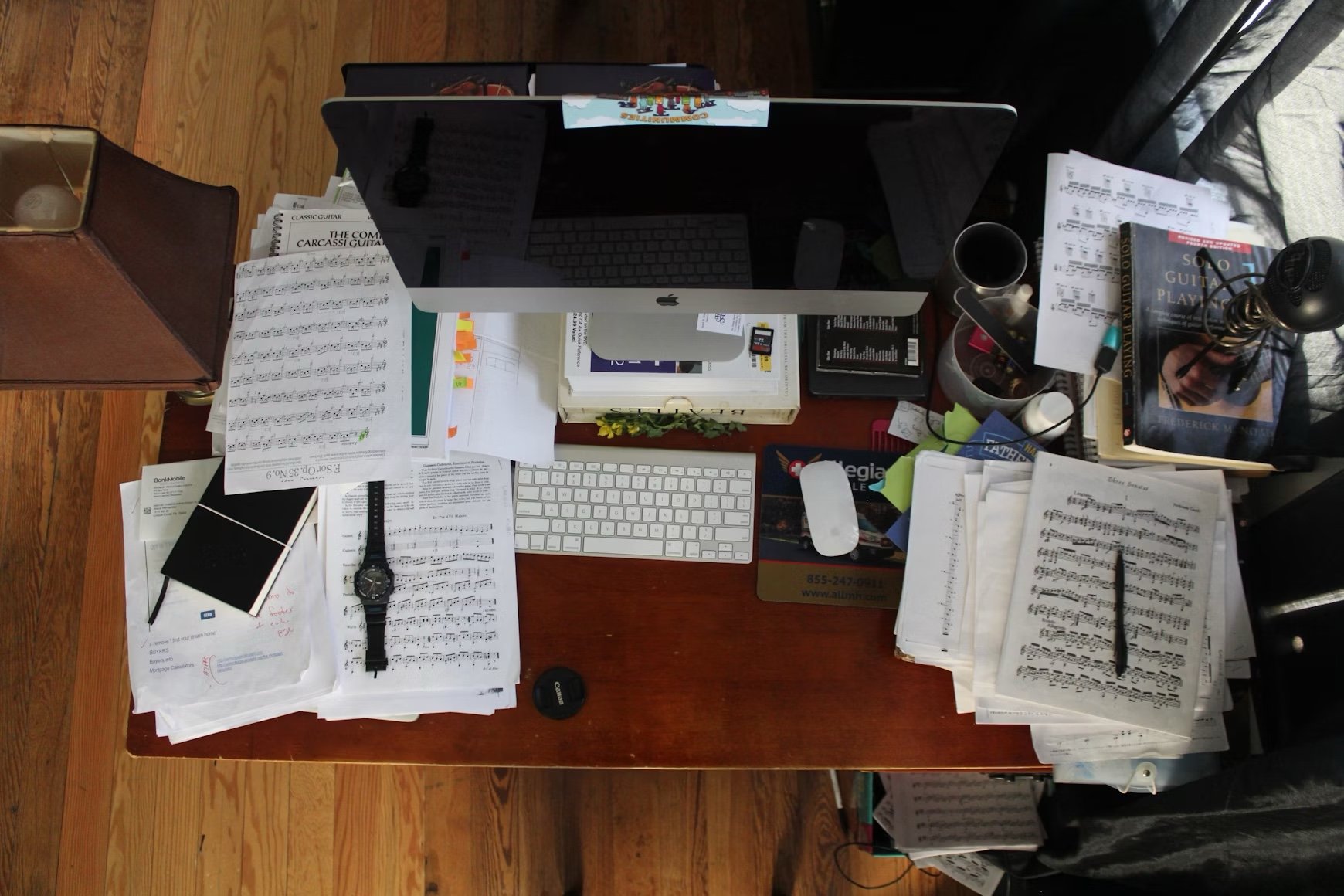This Spring, Clean Your Cluttered Brain (6 Ideas)
Sure, you could use the Spring Cleaning vibe to try to tackle that one closet or the attic again for the 100th time (and swear you'll actually finish it this time!)
Instead of the usual Spring Cleaning routine, why not focus on decluttering your mind, energy, and information?
Here are our ideas for some neurodivergent-specific spring cleaning:
1. Calendar Clutter?
Go over your calendar and eliminate anything recurring that you hoped or wished to do but isn't actually happening.
It's not happening anyway, so the reminder only causes stress and guilt. By removing these non-occurring events, you'll feel a sense of relief and regain control over your time. This will not only reduce stress but also increase your trust in your calendar, enhancing your overall capacity.
2. Prune Projects
Consider what projects feel 'active' and which you could pause or stop altogether. (This is another version of the previous point.)
It's incredibly draining to have a big pile of things we need to act on but do not have the capacity or time to do. To free up brain space and reduce the risk of burnout, decide to shelve these projects officially. If, realistically, progress will not happen, we're better off not worrying about it. Making this challenging decision in advance can make a big difference in the stress level and shame.
3. TMI?
Evaluate your information intake (email, mail, notifications, receipts, pamphlets) and see where to reduce the flow.
Speaking of accumulating things, how could you reduce that physical mail accumulation? There are "do not contact" lists for flyers and promotional materials that might be worth the attempt (I saw a decrease in mine in Portland, Oregon, though I need to renew at least one again). Or put a recycle bin between where you get the mail and where mail lives can keep unwanted physical mail from hiding something we really need.
Or spend a few minutes looking for email mailing lists by searching for the word "unsubscribe" to reduce the flow of information.
Consider declining receipts when making purchases that you don't need a record of. Even email or text message receipts can contribute to overwhelm. The same goes for pamphlets or business cards—take a picture to capture the information.
4. Todo's Not 'Doing'?
Think about something that isn't working with your tasks.
- Not capturing them?
- Not sure where to start?
- Too many overdue?
- Can't remember where you put them?
- Maybe the tasks are in the right place, but you never look at them?
Pick one area and think about how you could improve it.
5. What Drains You?
Notice surprising "energy expenditure" in your day-to-day life.
Neurodivergent folks can have differing experiences of what drains energy/resources. Something most people might think is easy, like filling out a form, can drain us dramatically. Other things, like creative performance, which others might think of as draining, often fill us up.
What are the things that drain you, and what fills you up or energizes you? Even the challenging but straightforward act of noticing these can benefit us and support us to make better decisions about how we move through our days.
6. Sensory Overload?
Identify and remove sensory overload triggers you might encounter regularly.
Sensory sensitivities are common in the neurodivergent community. The fewer triggers of this kind we endure throughout the day, the greater our resource retention will be. Some are unavoidable, but we can reduce our overload in some ways.
Examples to improve your sensory overload: the fabrics of the clothes you buy, sock style, scented products, lightbulb warmth (or anti-fluorescent), oiling noisy door hinges-- whatever has been subtly bothering you.
Remember to check all five senses, such as how something feels to us emotionally or negative associations. Those are valid, too! What could be improved to grant you greater sensory peace?
You don't have to do it alone
Whatever you decide to take on this spring, remember that you're not alone. Seeking accountability while you clear the informational cobwebs can be empowering.
Join our free Weekly Review Livestream every Tuesday at 9 a.m. Pacific / 12 p.m. Eastern. We'll plan the week together, swap wins, and give each other the gentle nudge we need to keep rolling.
* Add it to your calendar: Download the ICS file and add it to your calendar.
* Join the stream: Subscribe on YouTube to make sure it pops up when you're online.
✨ Bonus Stream: We’re adding an extra review session this Friday, May 2, also at 9 a.m. Pacific / Noon Eastern. Bring your coffee and half-formed to-dos—let's sort them out live.
See you in the chat—fresh notebooks, comfy sweatpants, and whatever you need to sort out.
Happy Spring!
Brittany and Ollie




